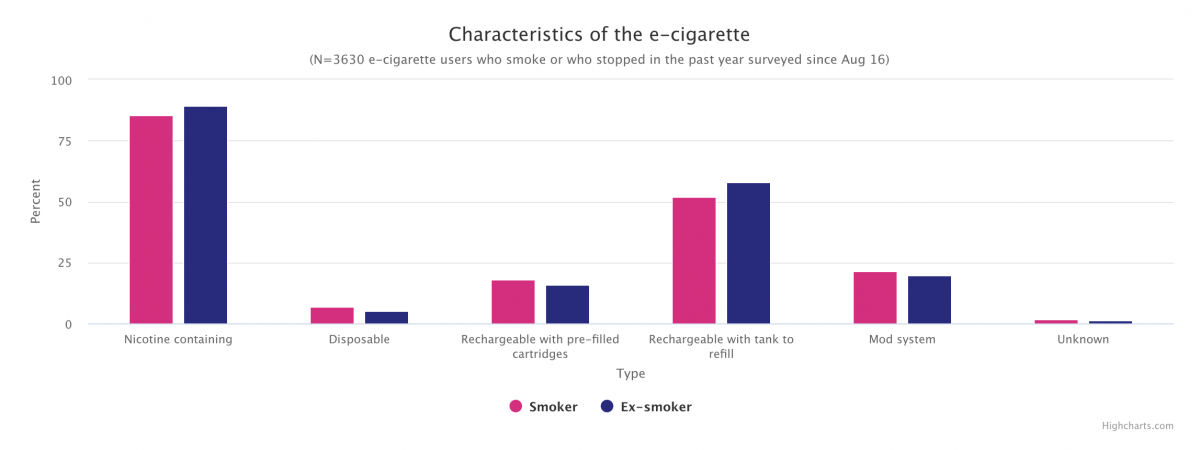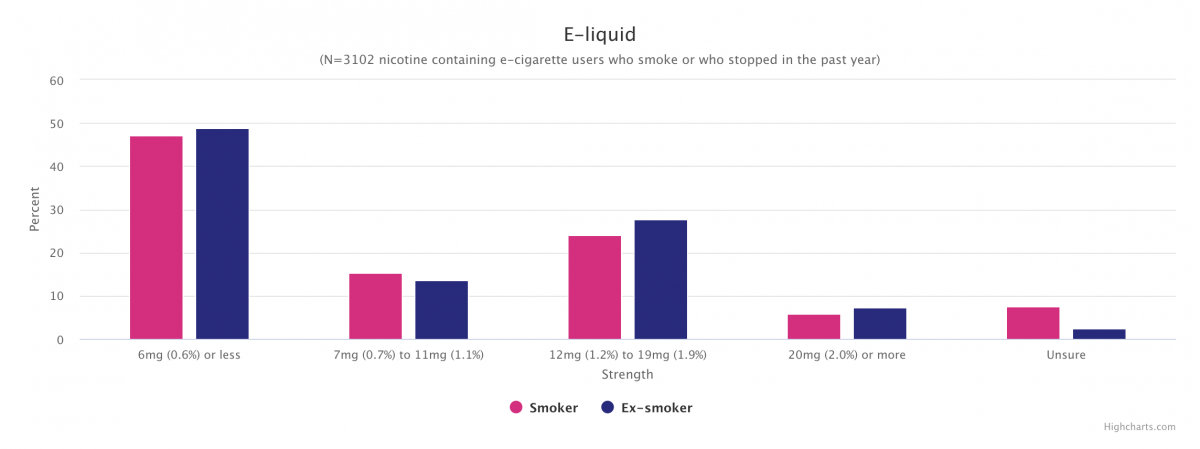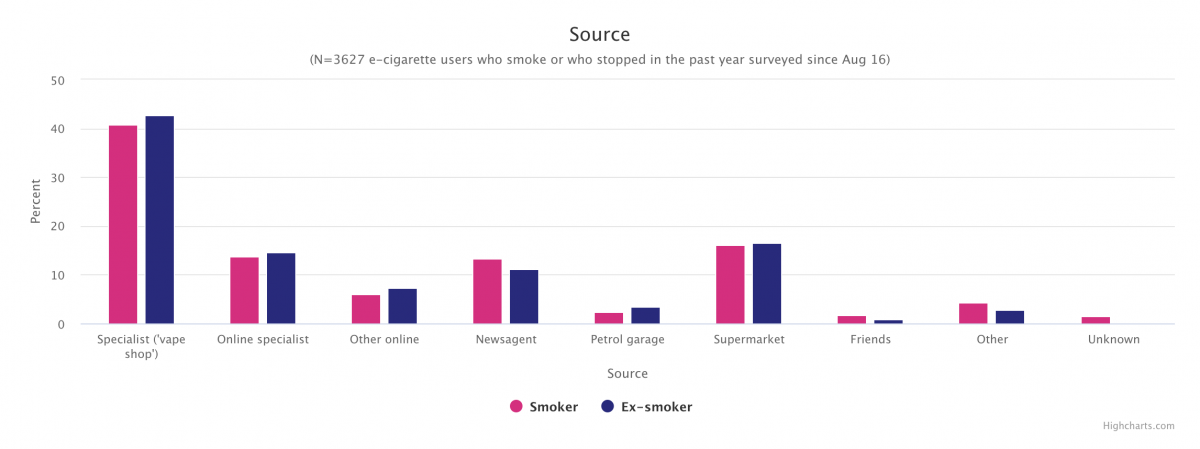The team say: “Electronic cigarette use has become prevalent in many countries. In England, electronic cigarettes are currently regulated as consumer products. It is important to track use of electronic cigarettes and assess how far they appear to be promoting or detracting from reduction in prevalence of cigarette smoking.”

The aim to track the use of electronic cigarettes over time and assess how any increase in vaping is accompanied by changes in:
- use of other aids to cessation or smoking reduction
- key performance indicators for tobacco control (smoking prevalence, smoking cessation rates, attempts to stop smoking, success of attempts to stop smoking
Plus, they assess if anyone who has already stopped smoking for a year or more or people who never smoked have taken up vaping.
The process involves monthly household surveys, conducted by phone during the pandemic, covering people over 16-yrs old. In total, 1800 people respond, of which around 450 will be smokers. The data is added to the sets collected since 2011.

This UCL team state:
- Use of e-cigarettes in the adult population has remained relatively stable since late 2013
- Use of Juul and heated tobacco products is rare
- E-cigarette use by never smokers remains very rare but use among long-term ex-smokers has grown
- E-cigarette use in smokers and recent ex-smokers has plateaued
- Around half of e-cigarette users and the majority of NRT users are ‘dual users’ (also smoke)
This indicates that vaping is increasingly working as an intervention tool for ex-smokers who might otherwise lapse back to smoking.
- Frequency of use among users is greater in ex-smokers
- The majority contain nicotine and later generation devices are more popular with ex-smokers
- Ex-smokers use e-liquids with stronger concentrations of nicotine
- Use of 20mg (2%) and stronger nicotine has increased since 2016
- Purchase from specialist vape shops has declined since 2016 as non-specialist and online purchases have risen
- E-cigarette use is least popular with older smokers while NRT use is lower among younger smokers

- The long-term decline in the prevalence of cigarette smoking continues
- The smoking cessation rate, and the success rate in those who have tried to stop smoking, increased after 2011 before plateauing until a further increase in 2020
- The rate at which smokers have tried to stop in the past year decreased from 2015 before increasing in 2020
Worryingly, they note that the proportion of smokers who believe e-cigs are less harmful has declined since 2014 and the proportion who are unsure about the relative harm increased in 2020.

The group conclude that e-cigarette use has remained relatively stable since 2013, and that vaping by never-smokers remains very rare. They present a link between a rise in the use of vape products and the reduction in use of traditional licensed nicotine products and prescription medication, indicating that vaping is the method of choice with smokers looking to reduce harm.
Although not stated clearly, there is an indication they link the increase in vaping to the decline in the prevalence of cigarette smoking since 2007 and plays a major role in the success noted in stopping smoking during 2020.
References:
- Trends in electronic cigarette use in England - https://smokinginengland.info/graphs/e-cigarettes-latest-trends
Dave Cross
Journalist at POTVDave is a freelance writer; with articles on music, motorbikes, football, pop-science, vaping and tobacco harm reduction in Sounds, Melody Maker, UBG, AWoL, Bike, When Saturday Comes, Vape News Magazine, and syndicated across the Johnston Press group. He was published in an anthology of “Greatest Football Writing”, but still believes this was a mistake. Dave contributes sketches to comedy shows and used to co-host a radio sketch show. He’s worked with numerous start-ups to develop content for their websites.
Join the discussion
Harm Reduction For The Rich
The United Kingdom risks becoming a harm reduction country only for the wealthy, according to Michael Landl of the World Vapers’ Alliance
CAPHRA Highlights Tobacco Control Flaws
The Coalition of Asia Pacific Tobacco Harm Reduction Advocates highlights the flaws in tobacco control which has led to the rise of black market in Australia
A Missed Opportunity at COP10
The Smoke Free Sweden movement says that COP10 was a missed opportunity to save millions of lives
COP10: Promote Tobacco Harm Reduction
Experts with Smoke Free Sweden are emphasising the urgent need for a Tobacco Harm Reduction approach at COP10












